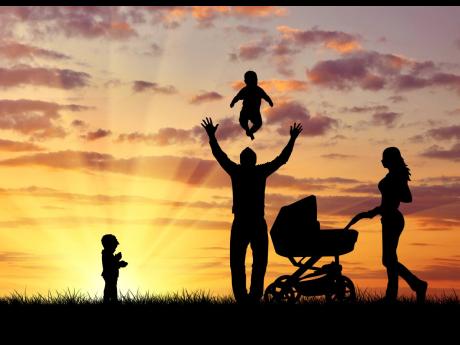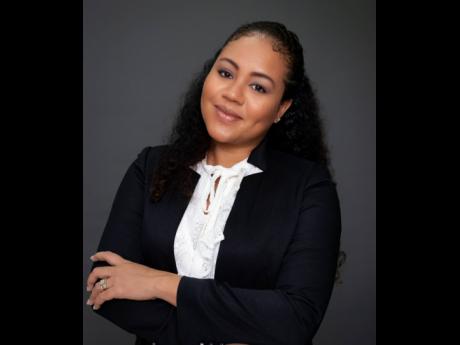Xinyu Addae-Lee | Adoption laws – what needs to change?
There have been recent comments about the Children (Adoption of) Act (‘the Act’), by relevant ministers indicating that they intend to make changes to the act, in order to, I assume, make adoption more efficient in Jamaica.
Well before a problem can begin to be solved one must identify and admit the issues and shortfalls that plague the adoption system.
In an article titled, ‘Adoption dilemma’, published on January 5, 2014, in The Observer Ingrid Brown stated, “Hundreds of children will never lose the label ‘wards of the state’ because their biological parents are failing to sign over their rights to have them adopted by families who have been fostering them for years.”
She goes on to tell the story of a 36-year-old woman who, after caring for a child from six months to five years old, began the process of adoption. However, despite not being able to contact the parent from 2012 (two years), she was informed that the adoption process would not go forward because of lack of consent from the parent. She was given some hope when the then Child Development Agency (CDA), now Child Protection and Family Services Agency (CPFSA), informed her that they would need to run an ad for six weeks and if there is no response, she would then be able to adopt the child. However, the story ends in frustration as the last information she received from the then CDA was that her case was handed to another adoption officer and when she contacted the department, she was informed that nothing could be done since they had not heard from the mother.
STEREOTYPICAL EXAMPLE
This, sadly, is a stereotypical example of what the process is like for the persons I have myself interviewed. So how is a new Adoption Act to solve this?
First, according to S.13(3) of the act, a child can be adopted as young as six weeks. It, therefore, raises the question as to why this foster mother was told to wait until six months and furthermore, what change will be made in the act to effectively have a child placed into the care of a potential adopter at the age it already stipulates?
Second, the act under S.11 states that the court may dispense with required consent; however, it seems this was not done before her case was handed over to another officer and then went cold. So, I ask again, what are we trying to change in the act when it already provides a solution for this problem?
I now bring our attention to a 2015 case, Adoption Board (The) v In the Matter of the Children (Adoption Of) Act [2015] JMSC Civ 185, over which Justice Sykes, as he was then, presided.
The matter was an appeal of the decision of the Adoption Board which denied the applicant the ability to move forward with an adoption of a 16-year-old girl, his second cousin, for whom he cared for “since she was in her mother’s womb”.
Justice Sykes defined adoption by reference to the dictum of Lord Simon; at paragraph [9] he states:
“… Adoption is the procedure whereby the two classes of adults – those who wish to surrender their rights and obligations in respect of a child and those who wish to assume them – are brought together, so that the latter are legally substituted for the former in relation to the child in question.”
After carefully analysing the current act and the adoption process Justice Sykes, at paragraph 7, came to the conclusion that the two-step process of requiring potential adopters to apply for a licence which then allows you to apply for adoption has no basis in law. The process is, and should be, a one-step process, which is to apply to adopt a child, as provided for by the current act.
So, is the Adoption Board of the CPFSA blatantly ignoring the act and making their own rules?
He further noted, in paragraph 10, that the practice of the board was to consider applications based on the reports placed before it and not to interview the applicants.
I wonder, in a matter so personal, how is it the Adoption Board can make a decision, having never seen the applicants before them?
At paragraph 4-5, Justice Sykes states:
“The reasoning of the board goes like this: in order for a child to be eligible for adoption it has to be shown that the present circumstances are deficient in some significant way ... to lead to the conclusion that the child is in need of care and protection. Unless that threshold conclusion is reached then the adoption is prevented.”
[5] “Anyone familiar with the concept of care and protection will know that it connotes the idea of a child who has been abused, neglected, or is at risk of being abused or neglected or both”
He then indicated that,
“Neither counsel for the board nor the witness for the board was able to provide any theoretical or practical justification for the need to form this conclusion before a child could become eligible for adoption.”
At paragraph 41, Sykes J succinctly states that the board refused the application despite the following undeniable facts:
“a. the child has never lived with the biological father;
b. the child spent the first six months of her life with her biological mother and has never, in the last 15½ years, lived with her mother;
c. the male applicant has been, on the evidence, the sole or main source of income that has supplied the needs of the child for her entire life, including life in the womb; … .”
CANNOT JUSTIFY OWN REASONING
So then, if the Adoption Board cannot justify their own reasoning in determining the eligibility for a person to adopt and be adopted, how is the act going to correct this?
Justice Sykes captured my sentiment, and the sentiment of many readers, I believe, in this statement as he concluded that the decision of the board was to be set aside:
“To deny a 16-year-old who is coming to the end of her school life the opportunity to be adopted by the applicants, one of whom has been supporting the child all her life, is difficult to understand. To deny a child the opportunity to break the very evident cycle of persistent poverty, early pregnancy (as has happened to her mother who has gone on to have three more children, none of whom lives with her) and reduced economic, social, and educational opportunities on the ground that she is not at risk is not easy to appreciate. But this is exactly what the board has done by its decision.”
If it was not clear before, I hope it has become clear that the management of adoption in the public sphere is less than ideal. So, in my opinion, until we start talking about the privatisation of adoption, we will not be addressing any of these issues.
Throughout the adoption process, much like pregnancy, one should be able to choose who to involve, one should have their hand held, have someone advocating for them, supporting them, guiding them and ultimately take them safely to the finish line, not a moment later than is necessary. You certainly do not want to start this process with a stranger, for instance, and assigned adoption officer, and worst, be assigned to another officer somewhere along the process, all while not being able to feel like you can hold them accountable for their action or inaction.
FAMILY LIFE IS PRIVATE MATTER
Creating a family is not a public matter, the ability to be a parent, in most instances, is the natural path of maturation and, therefore, the incredible mountains that we have to manoeuvre to do just that is simply superfluous. We can, as responsible adults, make these decisions and come to these arrangements without having to get a public body involved. The Supreme Court is obviously more than competent and able to satisfy themselves, before making an adoption order, that there is nothing nefarious happening. So, to answer my own question, ‘Adoption laws, what needs to change?’ Section 4 and Section 21, let us change that, let us remove Section 3 of the First Schedule, requiring the application to the board, in fact, let us remove the board from the process (unless the child is a ward of the state) and allow the court to play its role. Let us support the transition of responsibility from those who cannot manage it, or do not want it, to those who are desirous of becoming responsible for a child. Let us allow family life to be what it should be, private.
- Dr Xinyu Addae-Lee is a medical doctor and attorney-at-law; she practises in both areas and is passionate about advocating for the adoption process to be more transparent, efficient and family focused. Send feedback to law.x.jm@gmail.com


